Young Sikhs still struggle with post-September 11 discrimination
Young Sikh Americans still struggle a generation later with the discrimination that 9/11 unleashed against their elders and them, ranging from school bullying to racial profiling to hate crimes — especially against males, who typically wear beards and turbans to demonstrate their faith.
1/10

Rose Kaur Sodhi, a medical resident at Cedars-Sinai Medical Center, stands for a portrait in Los Angeles. Rose, Balbir Singh Sodhi’s niece, was a second grader getting ready for a relative’s birthday party when her family learned of her uncle’s murder. (AP Photo/Jae C. Hong)
2/10

“We knew something was terribly wrong because my dad came home crying. I had never seen that before,” she said of her father and Balbir’s brother, Rana Singh Sodhi, who became a well-known figure in the Sikh American community and taught her to share her family’s story and advocate for peace. (AP Photo/Jae C. Hong)
3/10
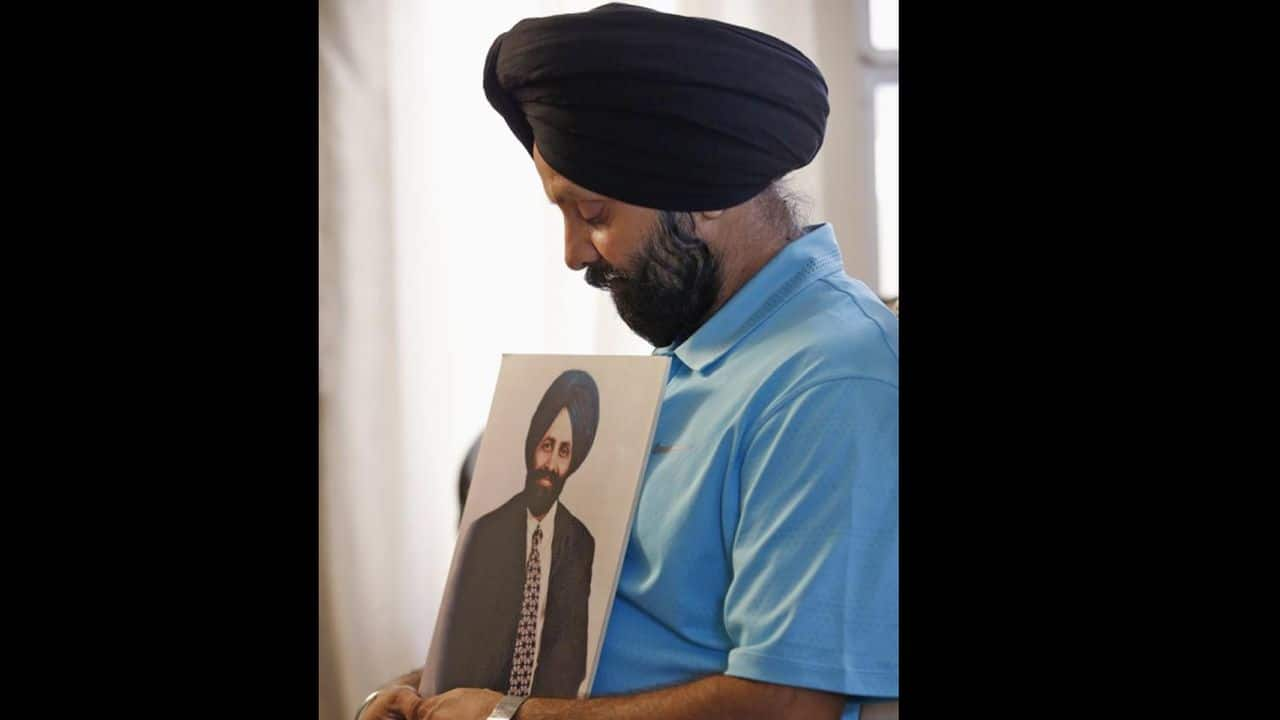
Rana Singh Sodhi, holds a photograph of his murdered brother, Balbir Singh Sodhi, in Gilbert, Ariz. The Sikh American was killed at his Arizona gas station four days following the September 11 attacks by a man who announced he was "going to go out and shoot some towel-heads" and mistook him for an Arab Muslim. (AP Photo/Ross D. Franklin, File)
4/10

Rana Singh Sodhi, kneels near his service station in Mesa, Ariz., next to a memorial for his brother, Balbir Singh Sodhi, who was murdered in the days after the September 11 terrorist attacks. Sodhi, a Sikh American was killed at his Arizona gas station four days following the September 11 attacks by a man who announced he was "going to go out and shoot some towel-heads" and mistook him for an Arab Muslim. (AP Photo/Ross D. Franklin, File)
5/10
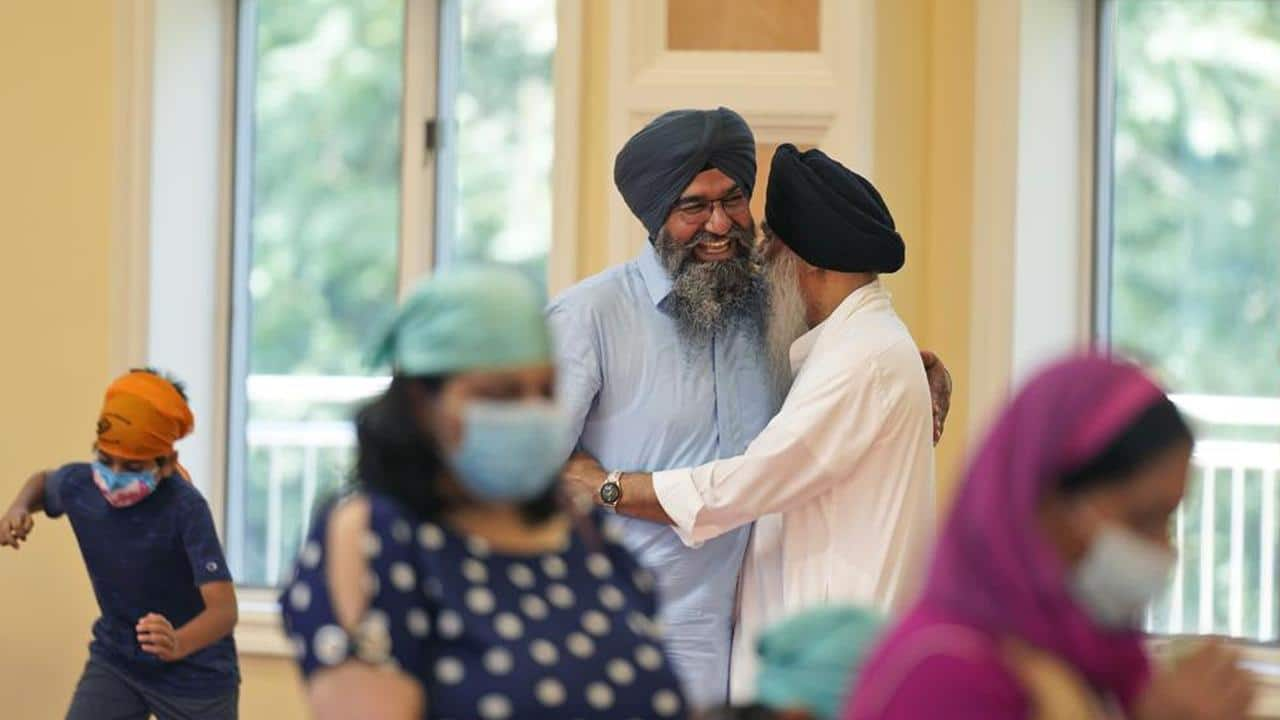
Raghuvinder Singh, center left, greets a friend after a Sikh worship service at a gurdwara in Glen Rock, N.J. Baba Punjab Singh, a Sikh priest visiting from India, was shot in the head by a white supremacist Army veteran in Wisconsin in 2012, and left partially paralyzed. He died from his wounds in 2020. Over seven years, the priest’s son, Raghuvinder Singh, split his time between caring for his father in Oak Creek and working in Glen Rock, New Jersey, as assistant priest at a gurdwara there. Raghuvinder said the greatest lesson his father taught him was how to embody “chardi kala,” which calls for steadfast optimism in the face of oppression. (AP Photo/Seth Wenig)
6/10
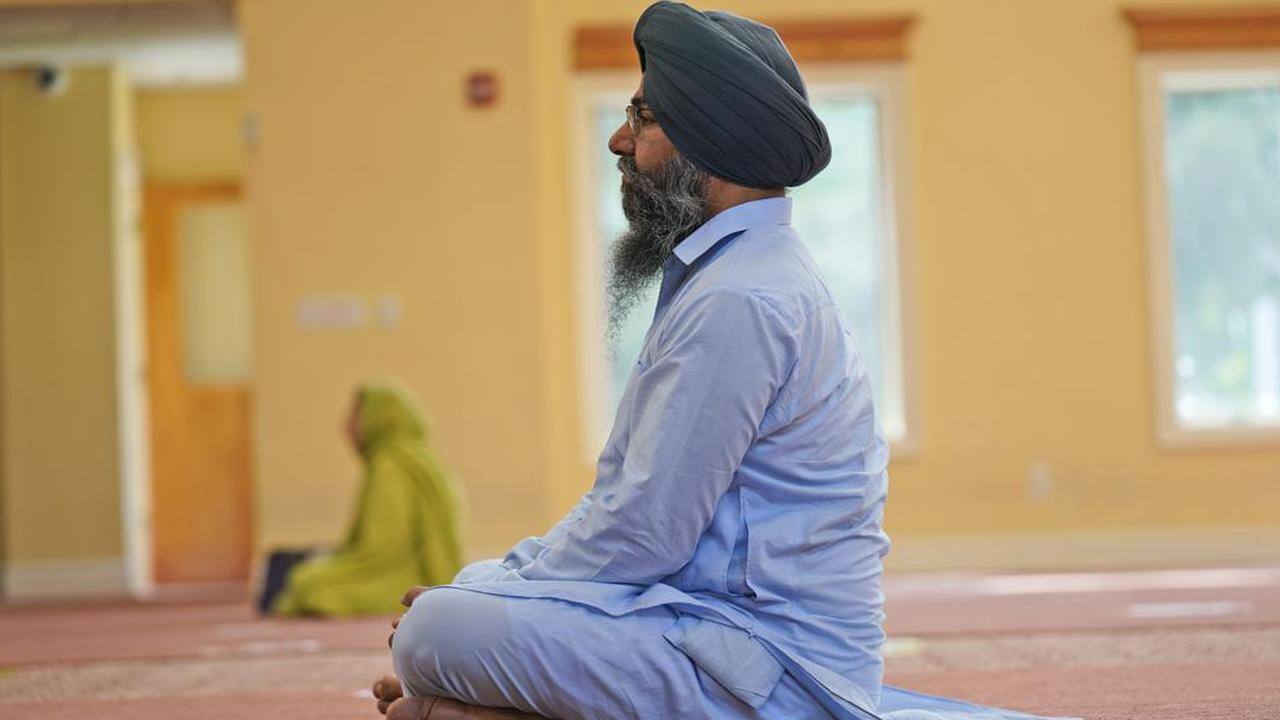
Raghuvinder Singh participates in a Sikh worship service at a gurdwara in Glen Rock, N.J. (AP Photo/Seth Wenig)
7/10
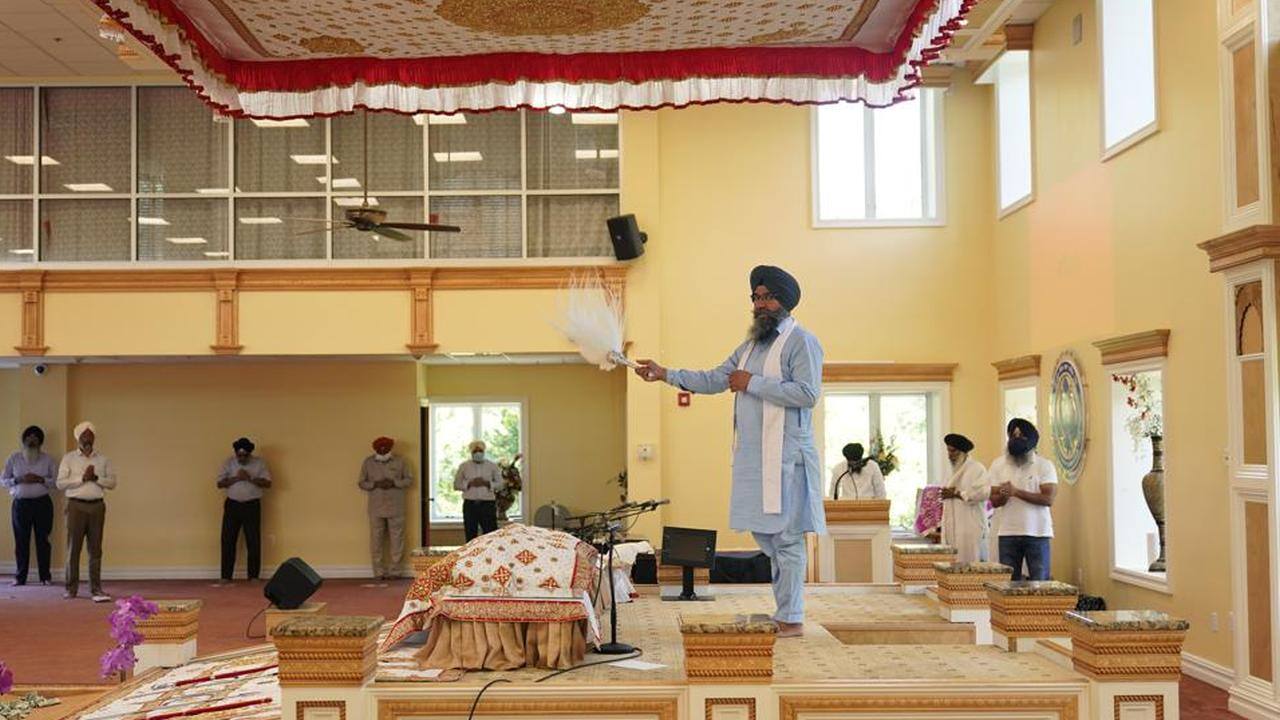
Raghuvinder Singh, center, participates in a Sikh worship service at a gurdwara in Glen Rock, N.J. (AP Photo/Seth Wenig)
8/10
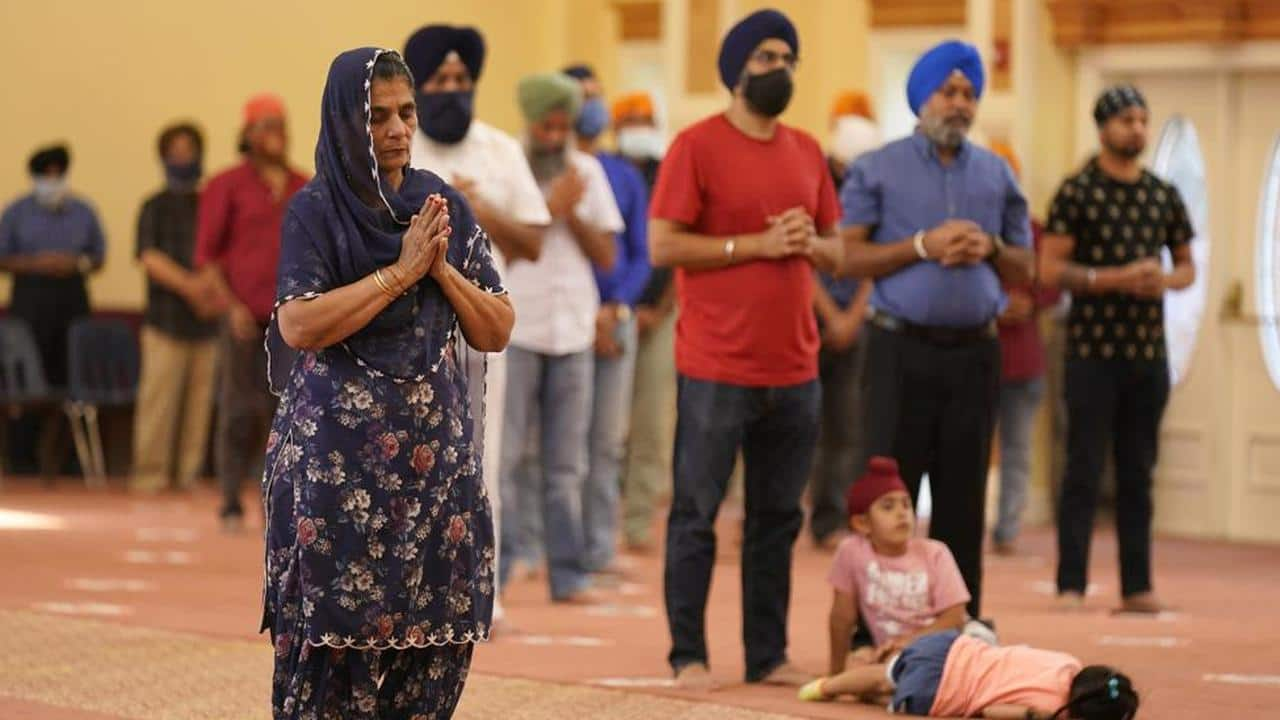
Young Sikh Americans still struggle a generation later with the discrimination that 9/11 unleashed against their elders and them, ranging from school bullying to racial profiling to hate crimes — especially against males, who typically wear beards and turbans to demonstrate their faith. (AP Photo/Seth Wenig)
9/10

As the 20th anniversary of September 11 nears, those younger Sikhs say much more is needed to improve how hate crimes against their community are tracked. The FBI didn’t even begin tracking hate crimes specifically against Sikhs until 2015, and many local law enforcement agencies fail to record bias attacks comprehensively. (AP Photo/Seth Wenig)
10/10
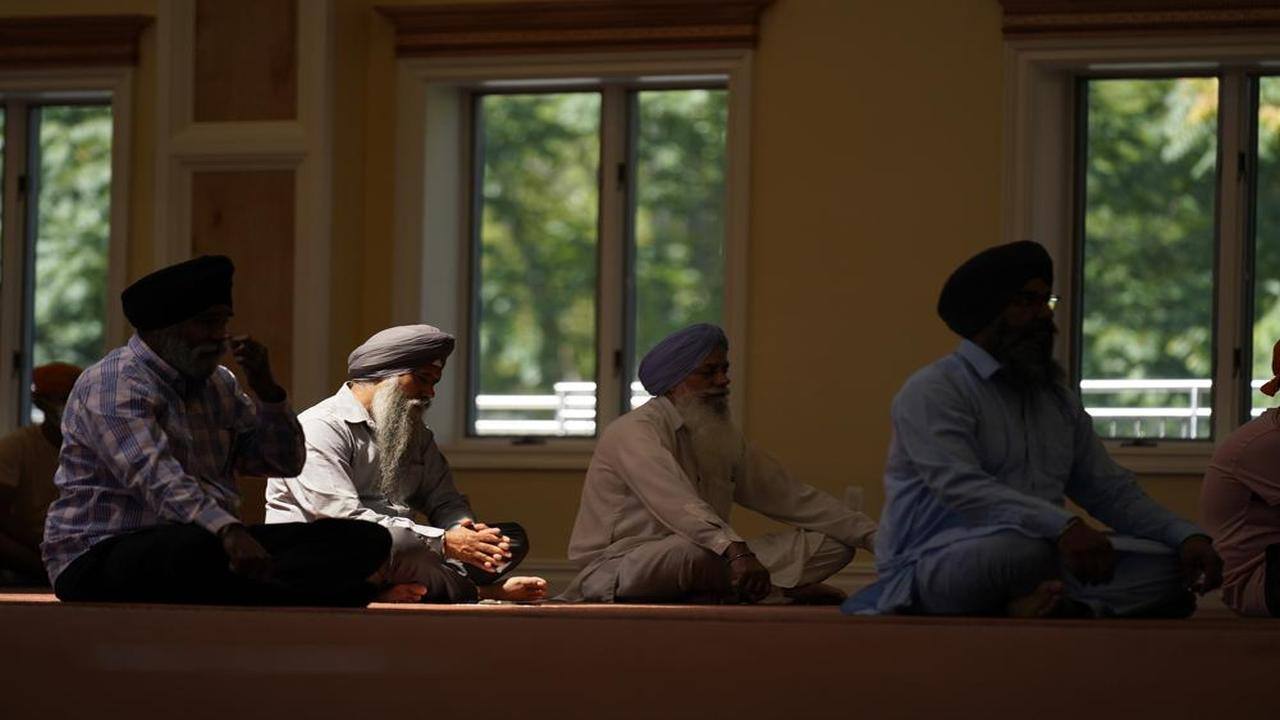
Such attacks can be particularly hard on young Sikhs, who face bullying by classmates who try to yank off their turbans or mock them as “Osama’s nephew” or “Saddam Hussein.” They often struggle with the Sikh philosophy of “chardi kala,” which calls for steadfast optimism in the face of oppression. (AP Photo/Seth Wenig)
Discover the latest Business News, Budget 2025 News, Sensex, and Nifty updates. Obtain Personal Finance insights, tax queries, and expert opinions on Moneycontrol or download the Moneycontrol App to stay updated!






